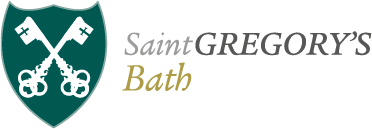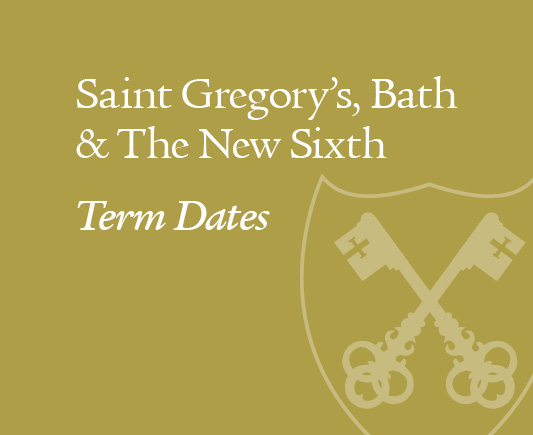‘Speak Lord your servant is listening’ (1 Samuel 3:10)
This weekend the first reading is a familiar one from the Old Testament – the calling of Samuel. You may recall that the passage follows a repetitive narrative with Samuel constantly up and down out of bed,
‘Then he ran to Eli and said, “Here I am, since you called me.” Eli said,
“I did not call. Go back and lie down.”’ (1 Samuel 3:4)
It is only the third time that Samuel is instructed by the high priest, Eli, to respond to the call with the words ‘Speak Lord your servant is listening’ as he realises that it is the Lord who is calling Samuel. It’s not just a big booming voice disrupting sleep, but in the fullest sense of the word – calling. As the scripture scholar Scott Hahn points out, Samuel is already waiting on the Lord – he is sleeping near the Ark of the Covenant, where God’s glory dwells. Samuel is ready, he awakes and is immediately receptive, as the end of the passage points out,
‘Samuel grew up and the Lord was with him, and Samuel let no word of God’s fall to the ground.’ (1 Samuel 3:19)
The Gospel for this weekend comes from the early days of Jesus’ ministry, as the disciples started to follow the Lord. Consider for a moment the furore surrounding John the Baptist, his ministry was receiving something of a cult following. People flocked out of the towns and into the middle of nowhere to hear what this man who ‘wore camel skins and ate locusts and wild honey’ (Matthew 3:5) had to say, to experience his passionate preaching, to be challenged by the Word of God.
‘In those days John the Baptist appeared in the wilderness of Judea, proclaiming,
“Repent, for the kingdom of heaven has come near.”’ (Matthew 3:3)
In this passage from John’s Gospel we Jesus, ready for ministry, walking by John the Baptist who has two of his own disciples with him. We are told that John the Baptist signals to the two of them that Jesus is the Lamb of God, and without any real hesitation they leave John the Baptist to follow Jesus!
‘As John stood with two of his disciples, Jesus passed, and John stared hard at him and said, “Look, there is the lamb of God.” Hearing this, the two disciples followed Jesus. Jesus turned round, saw them following and said, “What do you want?” They answered, “Rabbi,” – which means Teacher – “where do you live?” “Come and see” he replied; so they went and saw where he lived, and stayed with him the rest of that day. It was about the tenth hour.’
(John 1:35-39)
At first glance it seems a slightly odd conversation for the two disciples to have with Jesus, these two strangers start following Jesus then ask where he lives. In any other situation alarm bells would be ringing! But in this instance the peculiar actions of John’s two disciples echo the same message as the calling of Samuel. That is, ‘hear the Word of God, and follow the Lord calling you’. We know nothing of the conversations they had with Jesus for the rest of the day, or what they ate or drank, but the impact is presented in all it’s glory over the next passage.
‘One of them was Andrew, Simon Peter’s brother. At once he found his brother Simon and told him, “We have found the Messiah.”. Then he took Simon to Jesus. Jesus looked at him and said, “Your name is Simon son of John, but you will be called Cephas.”’ (John 1:40-42)
Those first two disciples knew that God was with them, and they allowed the Word of God to reveal itself. They responded to Jesus’ call by uprooting their entire lives.
These readings seem especially pertinent to the current climate we face. Look at the situations you are faced with each day, the challenges you experience from a personal point of view: home, school and work. Reflect on the decisions made for us, the aspects of our lives restricted or hindered at present. Our opinions on the way this current pandemic is being handled. Everything that is taking place right now has embedded within, moments where the Lord is calling us, times where He is challenging us, situations where God’s big booming voice is being played over speakers – can we hear it?
These questions are so unique to your calling, unique to your life – we don’t have to look very far to see others hearing God’s call: medical staff returning to work post retirement, school staff offering to be trained as medical testers, supermarket workers taking on additional shifts to keep the shelves full, volunteers transporting the vulnerable to appointments, millions sharing positivity stories on social media, so many businesses finding resourceful ways of supporting others, even when their own future looks uncertain. Every moment of this third lockdown presents a way in which we can be with the Lord, the question is whether we respond with ‘Speak Lord, you servant is listening’.
Going back to Samuel, do we truly hear the fullest Word calling and respond like Samuel did by letting God’s Word be ours and allowing the Lord to be with us? Do we harness the spirit of those first two disciples by finding ways to respond to the chaos around us with the Word of God?
Mr M Robinson
Lay Chaplain




